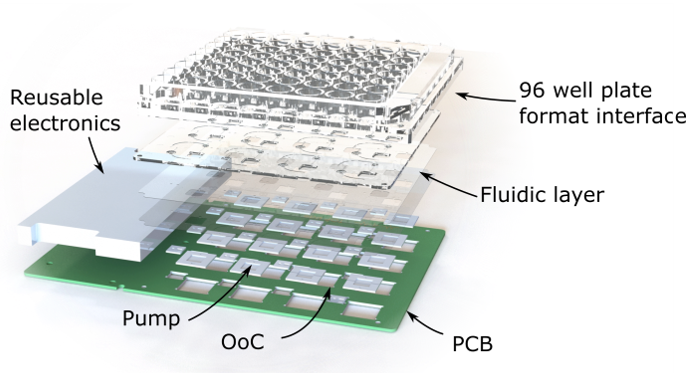Openings at ECTM
Organ-on-chip devices for Smart Multi-Well Plate
Opening for: PhD studentStatus details
| Status: | Open |
|---|---|
| Announced: | 01 Sep 2023 |
| Duration: | 4 years |
Organ-on-chip (OoC) technology is changing the way in which we study human physiology and, contextually, develop and screen new drugs. OoC technology aims to reproduce synthetically a realistic microenvironment for cells and tissues, whereby they can behave as if in the human body. This way (patho)physiological states and responses can be recapitulated in-vitro to an unprecedented level of fidelity. A large variety of OoC devices and models are available, which reflect the variety and complexity of human tissues and organs; however, such variety should be supported by standards and guidelines to make the devices compatible, easy to use and reproducible. The Smart Multi-Well Plate (SMWP) is an OoC platform which captures the power of OoC devices within the familiar aspect of a multi-well plate. Thanks to standards for geometry and interfaces, the SMWP at once fits with common laboratory practice and lets users configure their own OoC models.
This PhD project aims to develop innovative OoC devices for integration within the SMWP. Using the micro/nanofabrication resources and expertise in design, materials and characterization available in our group, and also benefiting from prior insight, the candidate will explore solutions to develop functional, centimeter-scale chips including sensors and actuators and fitting the constraints and requirements of the SMWP. The project will unfold in the context of a vast national program featuring numerous technological partners whose complementary expertise will drive the deployment of the next-generation SMWP.
Requirements
We are looking for an enthusiastic candidate with background in micro/nanofabrication, materials engineering, applied physics and related domains, motivated to work in a multi-disciplinary and multi-cultural environment and driven to achieve significant impact in technological achievements. Fluency in spoken and written English is required.
Contact
dr. Massimo Mastrangeli
Associate Professor
Electronic Components, Technology and Materials Group
Department of Microelectronics
Additional information
In The Netherlands, almost all PhD positions are linked to funded research projects. This has several implications:- PhD students are employed: they receive a salary rather than a grant. Most projects have a duration of 4 years.
- Positions become available once a project is funded. This can happen at any time during the year.
- It typically takes 6 to 9 months for a project proposal to receive funding. In this period, a position may be anticipated but the outcome remains insecure. Once a project is funded, the open position needs to be filled as soon as possible.
If you are interested in our research, it merits to inquire whether openings will be available. We collect resumes of prospective PhD students throughout the year, for each of our research tracks.
General requirements
We make our selection based on the following general requirements:- Formal requirements regarding prior education: you should have earned an MSc degree at a recognized institute for higher education.
- Background: this depends on the specific project.
- Excellence: your Grade-Point-Average should be above 8 (10). Also your MSc thesis should have received a grade above 8 (10).
- English: you should be able to communicate well in english (written and oral). Provide TOEFL/IELTS scores if available.
- Originality: your MSc thesis or later work (publications) should reflect some original ideas. Critical and independent thinking is very important.
- Team player: you should be able to work well in a team of other project members.
